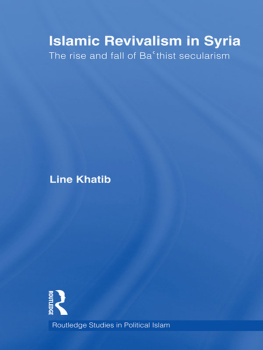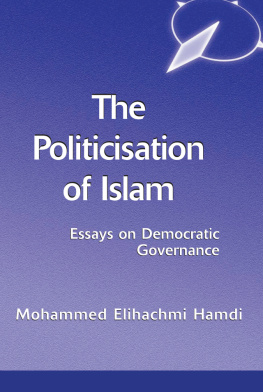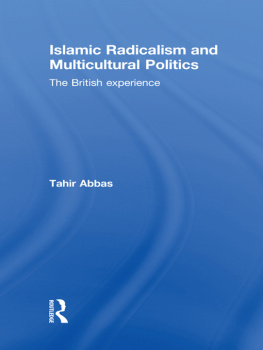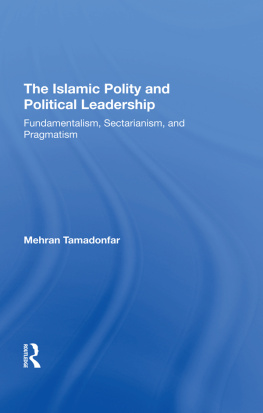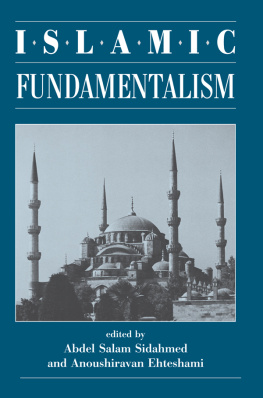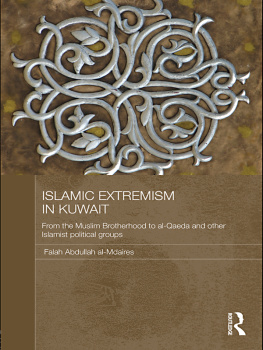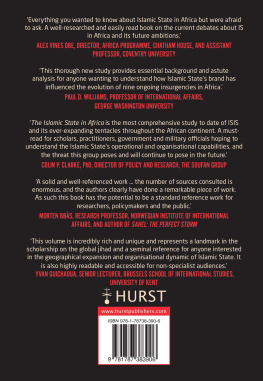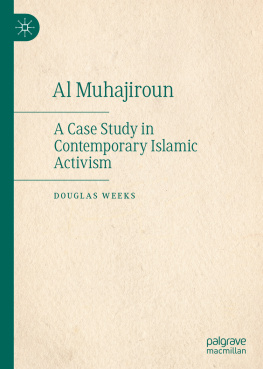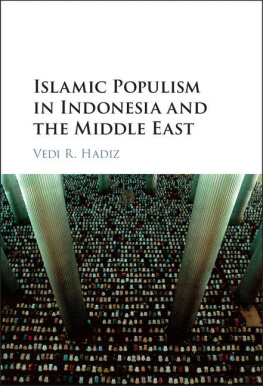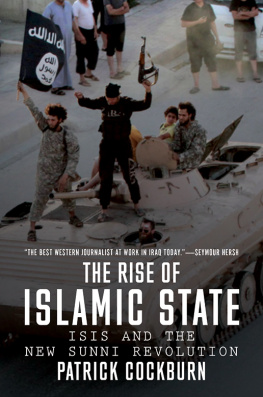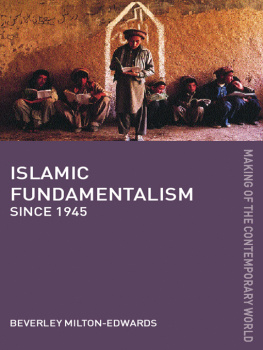Islamic Revivalism in Syria
Contemporary studies on Syria assume that the countrys Bathist regime has been effective in subduing its Islamic opposition, placing Syria at odds with the Middle Easts larger trends of rising Islamic activism and the eclipse of secular ideologies as the primary source of political activism. Yet this assumption founders when confronted with the clear resurgence in Islamic militantism in the country since 2004.
This book examines Syrias current political reality as regards its Islamic movement, describing the countrys present day Islamic groups particularly their social profile and ideology and offering an explanation of their resurgence. The analysis focuses on:
- Who are todays Syrian Islamic groups?
- Why and how are they re-emerging after 22 years of relative silence as an important socio-economic and political force?
- How is the Syrian state dealing with their re-emergence in light of Syrias secularism and ideologically diverse society?
Bridging area studies, Islamic studies, and political science, this book will be an important reference for those working within the fields of Comparative Politics, Political Economy, and Middle Eastern Studies.
Line Khatib is a senior research fellow at the ICAMES (Inter-University Consortium of Arab and Middle Eastern Studies), McGill University, and a visiting scholar at the Dubai School of Government. Her research interests lie within the fields of Comparative Politics, Political Economy, Political Islam, and Secularism, with a particular focus on Islamic groups as both social and political movements.
Routledge studies in political Islam
1 The Flourishing of Islamic Reformism in Iran
Political Islamic groups in Iran (194161)
Seyed Mohammad Ali Taghavi
2 The Political Thought of Sayyid Qutb
The theory of Jahiliyyah
Sayed Khatab
3 The Power of Sovereignty
The political and ideological philosophy of Sayyid Qutb
Sayed Khatab
4 Islam and Political Reform in Saudi Arabia
The quest for political change and reform
Mansoor Jassem Alshamsi
5 Democracy in Islam
Sayed Khatab and Gary D. Bouma
6 The Muslim Brotherhood
Hasan al-Hudaybi and ideology
Barbara Zollner
7 Islamic Revivalism in Syria
The rise and fall of Bathist secularism
Line Khatib
Islamic Revivalism in Syria
The rise and fall of Bathist secularism
Line Khatib
First published 2011
by Routledge
2 Park Square, Milton Park, Abingdon, Oxon OX14 4RN
Simultaneously published in the USA and Canada
by Routledge
711 Third Ave, New York, NY 10017
Routledge is an imprint of the Taylor & Francis Group, an informa business
2011 Line Khatib
The right of Line Khatib to be identified as author of this work has been asserted by her in accordance with sections 77 and 78 of the Copyright, Designs and Patents Act 1988.
All rights reserved. No part of this book may be reprinted or reproduced or utilized in any form or by any electronic, mechanical, or other means, now known or hereafter invented, including photocopying and recording, or in any information storage or retrieval system, without permission in writing from the publishers.
Trademark notice: Product or corporate names may be trademarks or registered trademarks, and are used only for identification and explanation without intent to infringe.
British Library Cataloguing in Publication Data
A catalogue record for this book is available from the British Library
Library of Congress Cataloging in Publication Data
Khatib, Line.
Islamic revivalism in Syria: the rise and fall of Bathist secularism/Line Khatib.
p. cm. (Routledge studies in political Islam; 7)
Includes bibliographical references and index.
1. SyriaPolitics and government2000 2. Islamic renewalSyria. 3. Islam and politicsSyria. 4. Islam and stateSyria. 5. SecularismSyria.
I. Title.
JQ1826.A58K43 2011
320.557095691dc22
2011003875
ISBN: 978-0-415-78203-6 (hbk)
ISBN: 978-0-203-80736-1 (ebk)
Acknowledgements
I am indebted in the writing of this work to my father, whose vast knowledge, passion for politics and consistent and wholehearted support have enlightened my way. Without him, none of this would have been possible. I am also indebted to my mother, whose intelligence and learning go far beyond politics. During my fieldwork, she took time away from her own work to join me, and was both an amazing companion and an extremely talented researcher and communicator. My husband took the time to read the entirety of this work, despite his own lack of free time and the demands of his work. His insightful intellect and penetrating remarks showed me that I was never rigorous enough, and his love and backing carried me through the most difficult moments. The cheerfulness and support of my cousin, my brother and my sister-in-law allowed me to take refuge away from my academic pursuits whenever I needed to do so. My familys uncondi-tional support has carried me through the many impasses that academics encounter on their journey: the loneliness of writing, the self-doubt and the uncertainty about the purpose behind all of the seemingly endless work.
Many scholars shape our minds and ultimately affect our lives. I will never forget my first class with Professor Rex Brynen, who makes academic work appear a great deal easier and, dare I say, cooler than it actually is. I am deeply grateful for his succinct comments and critical guidance of my work, and for his continuous support. I am also indebted to Professor Khalid Medani, whose exemplary scholarship and enriching interlocutions have allowed me to continue writing and reach the end of this project. Beyond scholarship, Rex Brynen and Khalid Medanis encouraging emails always arrived when I needed them the most. Laila Parsons scholarship, patient advice and invaluable support have truly touched me and lifted my spirit. Raymond Hinnebuschs penetrating questions and remarks guided this work, and I thank him deeply for reading and commenting on my PhD dissertation. I also owe a debt of gratitude to the anonymous Routledge reviewers and for Francesco Cavatorta for their invaluable comments, and for editors Joe Whiting and Suzanne Richardson whose patience and guidance made the whole process an enjoyable and smooth quest. I also thank Georgina Boyle and Phillippa Nichol for their invaluable editorial assistance.
My research and writing was funded by the Institute of Islamic Studies Fellowships, the Alma Mater Travel Grant award, the Arts Graduate Student Travel award and the Social Sciences and Humanities Research grant, which have allowed me to do the needed research and intensive fieldwork. My affiliation with ICAMES at McGill University, where many of the discussions that informed this work took place and where many nights of hard work were spent, has been vital and helped to shape my research. The welcoming environment at the Dubai School of Government where I finished writing this work has provided me with both the much-needed space and the serenity to see this project through to its conclusion.
I also owe a debt of gratitude to the personal and scholarly friends who stuck with me throughout the toughest time, encouraged me to keep on writing and kept me sane along the way: Manon Lavoie, Jean-Marie Seznec, Bok Young Hoon, Elodie Lacroix, Laila Sahyoun and Sobhi Sweidan, Nadia Wardeh, Dia Traore, Dima Ayoub, David Mason, Noora Lori and Tabitha Decker in times of doubt, their cheerfulness, encouraging phone calls and passionate words meant the world to me. I also benefited greatly from years of intellectual exchanges with various other scholars at McGill, as well as with Syrian observers and academics, all too numerous to mention.

